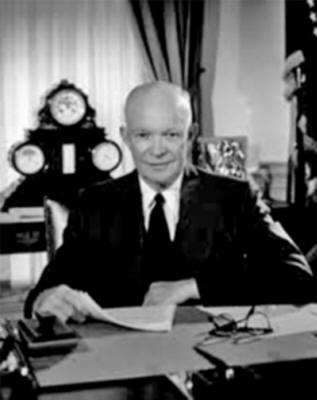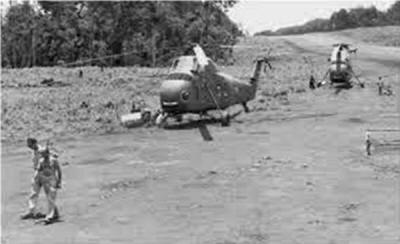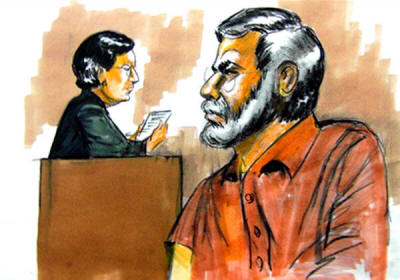
by Prof Peter Dale Scott
Asia-Pacific Journal Vol 9, Issue 4 No 2
January 24, 2011
from
JapanFocus Website
|
Peter Dale Scott, a former
Canadian diplomat and English Professor at the University of
California, Berkeley, is the author of Drugs Oil and War, The Road
to 9/11, The War Conspiracy: JFK, 9/11, and the Deep Politics of
War. His most recent book is American War Machine: Deep Politics,
the CIA Global Drug Connection and the Road to Afghanistan. Peter
Dale Scott is a Research Associate of the Centre for Research on
Globalization (CRG).
His website, which contains a wealth of his writings, is
here. |
I know the capacity that is there to
make tyranny total in America, and we must see to it that this
agency [the
National Security Agency] and all agencies that possess
this technology operate within the law and under proper supervision,
so that we never cross over that abyss.
That is the abyss from which
there is no return."
Senator Frank Church (1975)
In recent years I have become more and more
concerned with the interactions between three important and alarming trends
in recent American history.
-
The first is America's increasing
militarization, and above all its inclination, even obsession, to involve
itself in needless and pernicious wars.
-
The second, closely related, is the
progressive shrinking of public politics and the rule of law as they are
subordinated, even domestically, to the requirements of covert U.S.
operations abroad.
-
The third, also closely related, is the important and increasingly
deleterious impact on American history and the global extension of American
power, of what I have called deep events.
These events, like the JFK
assassination, the Watergate break-in, or
9/11, which repeatedly involve
law-breaking or violence, are mysterious to begin with, are embedded in
ongoing covert processes, have consequences that enlarge covert government,
and are subsequently covered up by systematic falsifications in media and
internal government records.
One factor linking Dallas, Watergate, and 9/11, has been the involvement in
all three deep events of personnel involved in America's highest-level
emergency planning, known since the 1980s as
Continuity of Government (COG)
planning, or more colloquially as "the Doomsday Project."
The implementation of
COG plans on 9/11, or what
I call Doomsday Power, was the culmination of three decades of such
planning, and has resulted in the permanent militarization of the domestic
United States, and the imposition at home of institutions and processes
designed for domination abroad.
Writing about these deep events as they occurred over the decades, I have
been interested in the interrelations among them. It is now possible to show
how each was related both to those preceding it, and those which followed.
I would like in this essay to go further and propose a framework to analyze
the on-going forces underlying all of the most important deep events, and
how they have contributed to the political ascendance of what used to be
called the military-industrial complex. I hope to describe certain
impersonal governing laws that determine the socio-dynamics of all
large-scale societies (often called empires) that deploy their surplus of
power to expand beyond their own borders and force their will on other
peoples.
This process of expansion generates predictable
trends of behavior in the institutions of all such societies, and also in
the individuals competing for advancement in those institutions.
In America it has converted the
military-industrial complex from a threat at the margins of the established
civil order, to a pervasive force dominating that order.

President
Eisenhower in
his
farewell address in 1961 warned that,
"We must guard against the
unwarranted influence, whether sought or unsought, by the Military
Industrial Complex."
With this framework I hope to persuade readers
that in some respects our recent history is simpler than it appears on the
surface and in the media.
Our society, by its very economic successes and
consequent expansion, has been breeding impersonal forces both outside and
within itself that are changing it from a bottom-up elective democracy into
a top-down empire. And among these forces are those that produce deep
events.
I am far from alone in seeing this degradation of America's policies and
political processes.
A similar pattern, reflecting the degradation of
earlier empires, was described at length by the late Chalmers Johnson:
The evidence is building up that in the
decade following the end of the Cold War, the United States largely
abandoned a reliance on diplomacy, economic aid, international law, and
multilateral institutions in carrying out its foreign policies and
resorted much of the time to bluster, military force, and financial
manipulation.
But my analysis goes beyond that of Johnson,
Kevin Phillips, Andrew Bacevich, and other analysts, in proposing that three
major deep events - Dallas, Watergate, and 9/11 - were not just part of this
degradation of American democracy, but played a significant role in shaping
it.
As author Michael Lind has observed, there have for a long time been two
prevailing and different political cultures in America, underlying political
differences in the American public, and even dividing different sectors of
the American government.
-
One culture is predominantly egalitarian and
democratic, working for the legal consolidation of human rights both at home
and abroad.
-
The other, less recognized but with deep historical roots,
prioritizes and teaches the use of repressive violence against both domestic
and Third World populations to maintain "order."
To some extent these two mindsets are found in all societies.
They
correspond to two opposing modes of power and governance that were defined
by Hannah Arendt as "persuasion through arguments" versus "coercion
by force."
Arendt, following Thucydides, traced
these to the common Greek way of handling domestic affairs, which was,
"persuasion (πείθειν) as well as the common
way of handling foreign affairs, which was force and violence (βία)."

Hannah Arendt
Writing amid the protests and riots of the
1960s, Arendt feared that traditional authority was at risk, threatened (in
her eyes) by the contemporary "loss of tradition and of religion."
A half century later, I would argue that a far
greater danger to social equilibrium comes now from those on the right who
invoke authority in the name of tradition and religion. With America's huge
expansion into the enterprise of covertly dominating and exploiting the rest
of the world, the open processes of persuasion, which have been America's
traditional ideal for handling domestic affairs, have increasingly tilted
towards top-down violence.
This tilt towards violent or repressive power is defended rhetorically as a
means to preserve social stability, but in fact it threatens it.
As Kevin Phillips and others have
demonstrated, empires built on violent or repressive power tend to rise and
then fall, often with surprising rapidity. Underlying the discussion in this
essay is the thesis that repressive power is unstable, creating dialectical
forces both within and outside its system.
Externally, repressive power helps create its
own enemies, as happened with Britain (in India), France (in Indochina) and
the Netherlands (in Indonesia).
The Socio-dynamics of
Repressive Power in Large-scale Societies
But more dangerous and destabilizing has been the conversion of those
empires themselves, into hubristic mechanisms of war.
The fall of Periclean Athens, which inspired
Thucydides' reflections, is a case in point. Thucydides described how Athens
was undone by the overreaching greed (pleonexia) of its unnecessary Sicilian
expedition, a folly presaging America's follies in Vietnam and Iraq.
Thucydides attributed the rise of this folly in the rapid change in Athens
after the death of Pericles, and in particular to the rise of a rapacious
oligarchy.
Paul Kennedy, Kevin Phillips, and Chalmers
Johnson have described the recreation of this process in the Roman, Spanish,
Portuguese, Dutch, and British empires. Its recurrence again in recent
American history corroborates that there is a self-propelling dynamic of
power that becomes repressive.
It is useful to be reminded of the historical division between two cultures
in America, which both underlay and predated the Civil War.
But these two cultures have evolved and been
reinforced by many factors.
For example urbanization in America's South and
West worked for most of the 20th century to meld the two cultures, but after
about 1980 the increasing disparity of wealth in America tended to separate
them to an extent recalling the Gilded Age of the 19th century.
More importantly, postwar U.S. history has seen the institutions of domestic
self-government steadily displaced by an array of new institutions, like the
CIA and Pentagon, adapted first to the repressive dominance and control of
foreign populations abroad, and now increasingly dominant domestically. The
manipulative ethos of this repressive bureaucracy promotes and corrupts
those who, in order to be promoted, internalize the culture of repressive
dominance into a mindset.
The egalitarian mindset is widely shared among Americans.
But Washington today is securely in the hands of
the global repressive dominance mindset, and a deepening of the
military-industrial complex into what in my most recent book I call the
American war machine. This transformation of America represents a major
change in our society.
When Eisenhower warned against the
military-industrial complex in 1961 it was still a minority element in our
political economy. Today it finances and dominates both parties, and indeed
is now also financing threats to both parties from the right, as well as
dominating our international policy.
As a result, liberal Republicans are as scarce
in the Republican Party today as Goldwater Republicans were scarce in that
party back in 1960.
That change has been achieved partly by money, but partly as a result of
deep events like,
-
the JFK assassination
-
the Watergate break-in
-
9/11
As
a rule, each of these deep events is attributed by our government and media
to marginal outsiders, like Lee Harvey Oswald, or the nineteen alleged plane
hijackers.
I have long been skeptical of these "lone nut" explanations, but recently my
skepticism has advanced to another level.
My research over four decades
points to the conclusion that each of these deep events:
-
was carried out, at least in part, by
individuals in and out of government who shared and sought to
promote this repressive mindset
-
enhanced the power of the repressive
mindset within the U.S. government
-
formed another stage in a continuous
narrative whose result has been a transformation of America, into a
social system dominated from above, rather than governed from below
Please note that I am talking about the result
of this continuous narrative, not about its purpose.
In saying that these
deep events have contributed collectively to a major change in American
society, I am not attributing them all to a single manipulative "secret
team."
Rather I see them as flowing from the workings
of repressive power itself, which (as history has shown many times)
transforms both societies with surplus power and also the individuals
exercising that surplus power.
We are conditioned to think that the open institutions of American
governance could not possibly provide a milieu for plots like 9/11 against
public order.
But since World War Two covert U.S. agencies
like the CIA have helped create an alternative world where power is
exercised with minimal oversight, often at odds with public agencies'
proclaimed policy objectives of law and order, and often in conjunction with
lawless and even criminal foreign and domestic elements.
The expansion of this covert world has occurred principally in Asia. There
covert U.S. decisions were made to build up drug-financed armies in Burma,
Thailand, and Laos, in a series of aggressive actions that by the 1960s
involved America in a hot Indochina War.
This war, like the related wars that ensued
later in Kuwait, Iraq, and Afghanistan, was initiated by America for a mix
of geostrategic and economic reasons, above all the desire to establish a
dominant U.S. presence an important region of petroleum reserves.

Air America at Sam
Thong, Laos, 1961
The country most deeply affected by the
succession of Asian Wars has been America itself. Its expansive forces,
backed by powerful interest groups, are now out of control, as our managers,
like other empire managers before them, have,
"come to believe that there is nowhere
within their domain - in our case, nowhere on earth - in which their
presence is not crucial." 7
To illustrate this, loss of control, let us look
for a moment at a milieu which I believe to have been an important factor in
all of America's major domestic deep events:
the CIA's ongoing interactions
with the global drug connection.
Unaccountable Power -
The CIA and the Return of the Global Drug Connection
Since World War Two the CIA has made systematic use of drug trafficking
forces to increase its covert influence - first in Thailand and Burma, then
in Laos and Vietnam, and most recently in Afghanistan.8
With America's expansion overseas, we have seen
more and more covert programs and agencies, all using drug traffickers to
different and opposing ends.
In 2004 Time and USA Today ran major stories about two of the chief Afghan
drug traffickers, Haji Juma Khan and Haji Bashir Noorzai, alleging that each
was supporting al-Qaeda, and that Khan in particular,
"has helped al-Qaeda establish a smuggling
network that is peddling Afghan heroin to buyers across the Middle East,
Asia and Europe." 9
Later it was revealed that both
traffickers were simultaneously CIA assets, and that Khan in particular was
"paid a large amount of cash by the United States," even while he was
reportedly helping al-Qaeda to establish smuggling networks.10
There is no longer anything surprising in the news that large U.S. payments
were made to a drug trafficker who was himself funding the Taliban and
al-Qaeda.
The arrangement is no more bizarre than the CIA's performance
during the U.S. "war on drugs" in Venezuela in the 1990s, when the CIA first
set up an anti-drug unit in Venezuela, and then helped its chief, Gen. Ramon Guillén Davila, smuggle at least one ton of pure cocaine into Miami
International Airport.11
It would be easy to conclude from these reports that the CIA and Pentagon
intentionally use drugs to help finance the enemy networks that justify
their overseas operations. Yet I doubt that such a cynical Machiavellian
objective is ever consciously voiced by those responsible in Washington.
More likely, it is an inevitable consequence of the U.S. repressive style of
conducting covert operations. Great emphasis is put on recruiting covert
assets; and in unstable areas with weak governance, drug traffickers with
their own ample funds and repressive networks are the most obvious
candidates for recruitment by the CIA.
The traffickers in turn are happy to
become U.S. assets, because this status affords them at least a temporary
immunity from U.S. prosecution.12
In a nutshell:
I am describing a development that is not so much
intentional, as a consequence of repressive dynamics.
A related example
would be the CIA's recurring use of double agents, again for the reason just
suggested.
In the 1998 bombing of the U.S. Embassy in Kenya, the chief
planner was a double agent, Ali Mohammed, who surveyed the Embassy and
reported to Osama bin Laden in 1993, just months after the FBI had ordered
the Canadian RCMP to release him from detention.13
In the Mumbai terrorist attack of 2008, the
scene was initially surveyed for the attackers by a DEA double agent, David
Headley (alias Daood Sayed Gilani) whom,
"U.S. authorities sent… to work for them in
Pakistan… despite a warning that he sympathized with radical Islamic
groups." 14

David Headley in court
The central point is that expansion beyond a
nation's borders engenders a pattern of repressive power with predictable
results - results that transcend the conscious intentions of anyone within
that repressive power system.
Newly formed and ill-supervised agencies spawn
contradictory policies abroad, the net effect of which is usually both
expansive and deleterious - not just to the targeted nation but also to
America.
This is especially true of covert agencies, whose practice of secrecy means
that controversial policies proliferate without either coordination or
review. Asia in particular has been since 1945 the chief area where the CIA
has ignored or overridden the policy directives of the State Department.
As
I document in American War Machine, CIA interventions in Asia, especially
those that escalated into the Laotian, Vietnam, and Afghan wars, fostered an
ongoing global CIA drug connection, or what I have called elsewhere a dark
quadrant of unaccountable power.
This drug connection, richly endowed with huge resources and its own
resources of illegal violence, has a major stake in both American
interventions and above all unwinnable wars to aggravate the conditions of
regional lawlessness that are needed for drug trafficking. Thus it makes
perfect sense that the global drug connection has, as I believe, been an
ongoing factor in the creation of an overseas American empire that most U.S.
citizens never asked for.
More specifically, the dark quadrant has
contributed to all the major deep events - including Dallas, Watergate, and
9/11, that have helped militarize America and overshadow its public
institutions.
Doomsday Power and the
Military Occupation of America
I have said that, underlying the surface of America's major deep events,
there has been a pattern of conflict between two mindsets - that of openness
and that of repressive dominance - dating back to the Civil War and the
Indian wars of the mid-nineteenth century (and before that to the American
Revolution).15
But it would be wrong to conclude from this
on-going pattern of conflict that there is nothing new in our current
situation. On the contrary, America is in the midst of a new crisis arising
from this very old antagonism.
Since World War Two, secrecy has been used to accumulate new covert
bureaucratic powers under the guise of emergency planning for disasters,
planning known inside and outside the government as the "Doomsday Project."
Known more recently (and misleadingly) as "Continuity of Government" (COG)
planning, the Doomsday Project, under the guiding hands in the 1980s of
Oliver North, Donald Rumsfeld, Dick Cheney, and others,
became the vehicle
on 9/11 for a significant change of government.
This package of extreme
repressive power accumulated under the guise of the Doomsday Project can be
referred to as Doomsday Power. In concrete terms, the repressive power
developed to control the rest of the world is now, to an unprecedented
extent, treating America itself as an occupied territory.
What I mean by "doomsday power" is the package of repressive mechanisms
(which I have discussed elsewhere under their official name of "continuity
of government" or COG plans), that was prepared over two decades by the
elite COG planning group, and then implemented beginning on 9/11.
The
package includes,
-
warrantless surveillance
-
warrantless detention,
(including unprecedented abridgments of the right to habeas corpus)
-
unprecedented steps towards the militarization of domestic security
enforcement and shrinking of the posse comitatus acts
One recent development of Doomsday power, for example, has been the
deployment since 2008 of a U.S. Army Brigade Combat Team to be stationed
permanently in the United States.
A major part of its dedicated assignment
is to be,
"called upon to help with civil unrest and
crowd control."16
Many people seem to be unaware that Americans,
together with this Brigade, have lived since 2002 under a U.S. Army Command
called NORTHCOM.17
Yet if nothing is done to change the present course of
events, historians may come some day to compare the stationing of this
brigade in 2008 CE to the date, in 49 BCE, when Caesar, along with his
legion, crossed the Rubicon.
And I believe that the forces that have worked for decades to create
Doomsday power have, like the global drug connection, been involved in every
one of the deep events, from Dallas to 9/11, that have helped bring us here.
Notes
1 Chalmers Johnson, Blowback: The Costs and
Consequences of American Empire (New York: Henry Holt, 2000), 217. Cf.
Chalmers Johnson, The Sorrows of Empire: Militarism, Secrecy and the End
of the Republic (New York: Metropolitan/Henry Holt, 2004).
2 Michael Lind, Made in Texas: George W. Bush and the Southern Takeover
of American Politics (New York: Basic Books, 2003), 143.
3 Hannah Arendt, Between Past and Future: Eight Exercises in Political
Thought (New York: Penguin Books, 1993), 93. Adapting Arendt's
distinction, Jonathan Schell made a Gandhian case in support of
nonviolent persuasive or community power as a means of challenging
top-down violent power and thus reforming the world. I developed this
case myself in The Road to 9/11 (Jonathan Schell, The Unconquerable
World: Power, Nonviolence, and the Will of the People [New York:
Metropolitan Books/Henry Holt, 2003], 227-31; Peter Dale Scott, Road to
9/11, 249-66, 269).
4 Kevin Phillips, Wealth and Democracy: A Political History of the
American Rich (New York: Broadway Books, 2002), 171-200.
5 Carl A. Huffman, Archytas of Tarentum: Pythagorean, philosopher, and
mathematician king (Cambridge: Cambridge University Press, 2005), 207:
"In Diodotus' speech in the Mytilenian debate, wealth is particularly
identified as producing arrogant "overreaching" (pleonexia –iii.45.4).
Thus pleonexia seems to be associated with the abuse of power by either
a tyrant or a wealthy oligarchy."
6 Paul M. Kennedy, The Rise and Fall of the Great Powers (New York:
Random House, 1987); Phillips, Wealth and Democracy; Johnson, The
Sorrows of Empire.
7 Johnson, Blowback, 221.
8 Scott, American War Machine, 63-142, 239-53. The Karzai regime in
Afghanistan is only the latest of CIA client governments to struggle to
maintain itself with support from drug traffickers. Cf.
Peter Dale
Scott, "Can the US Pacify the Drug-Addicted War in Afghanistan? Opium,
the CIA and the Karzai Administration", The Asia-Pacific Journal: Japan
Focus, April 5, 2010;
Ryan Grim, "Karzai Releasing Scores Of Drug
Traffickers In Afghanistan, WikiLeaks Cables Show," Huffington Post,
December 31, 2010.
9 Tim McGurk, Time, August 2, 2004; cf. USA Today, October 26, 2004.
10 James Risen, New York Times, December 11, 2010. Both traffickers were
ultimately arrested by DEA officials: Noorzai in 2005, and Khan in 2008.
The U.S. probably came to prefer Khan over Noorzai, because he was more
closely allied to Abdul Wali Karzai, another drug trafficker and CIA
asset, as well as a central figure in the power apparatus of his brother
Hamid Karzai, the U.S. client president of Afghanistan.
11 Time, November 29, 1993; Scott, American War Machine, 14-15; Tim
Weiner, New York Times, November 23, 1996.
12 It is too early to report the ultimate fate of Noorzai and Khan after
their arrest and indictment by the United States. But it is clear that
Guillén Davila's arrest and indictment never led to conviction or
imprisonment. On the contrary, he appears to have continued to enjoy CIA
favor in Venezuela. (Scott, American War Conspiracy, 14-15).
13 Scott, Road to 9/11, 152-58.
14 "D.E.A. Deployed Mumbai Plotter Despite Warning," New York Times,
November 8, 2009; cf. Scott, American War Machine, 246-47. In another
essay I will develop the thesis that what I call surplus repressive
power - power developed exclusively by one society for the repressive
dominance of others -- is doomed, in this and other ways, to encourage
the proliferation of its enemies. My point here is a more modest and
general one. Maybe save the sentence for the later work?
15 Cf. Peter Dale Scott, "Atrocity and its Discontents: U.S.
Double-Mindedness About Massacre," in Adam Jones, ed. Genocide, War
Crimes and the West: Ending the Culture of Impunity (London: Zed Press,
2004).
16 "Brigade homeland tours start Oct. 1," Army Times, September 30,
2008.
17 Scott, Road to 9/11, 241-42.





